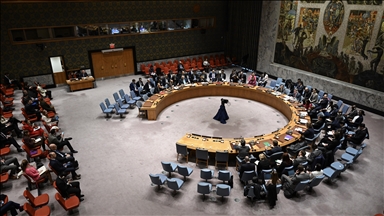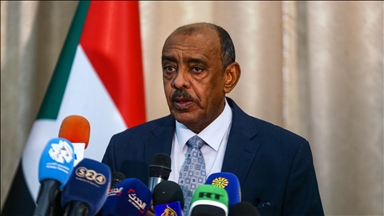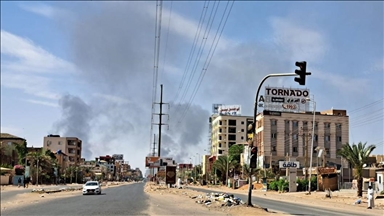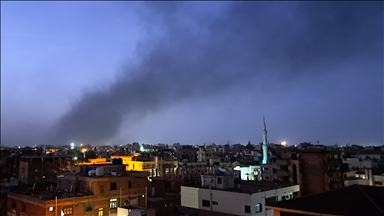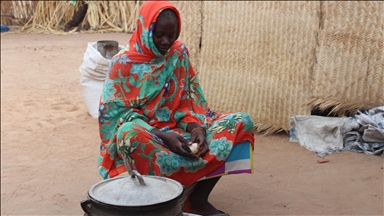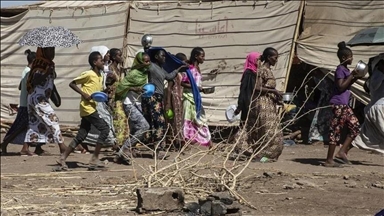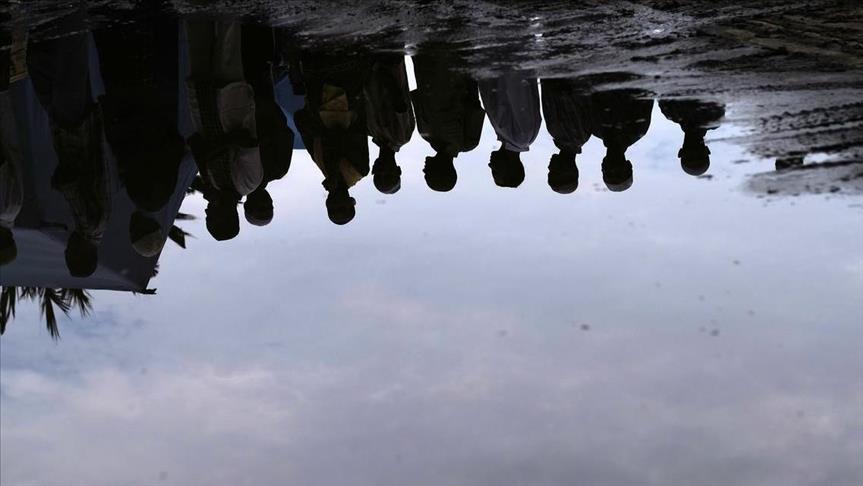 FILE PHOTO
FILE PHOTO
Sudan
By Mohammed Alameen
KHARTOUM, Sudan
Haddas Sisay, a young woman from Eritrea, had hoped to reach Italy via Sudan -- but her hopes were dashed when she was abducted by human traffickers in Sudan’s eastern region.
For two grueling months, she was held in the Tasanai area on the Sudan-Eritrea border, during which she was frequently raped by her captors and forced to do hard labor.
When she failed to pay the ransom demanded of her, Haddas told Anadolu Agency, she was taken to Khartoum, where she was handed over to another group of traffickers and forced to work in the sex trade.
Haddas’ story is similar to those of thousands of other Eritreans and Ethiopians who attempt to cross through Sudanese territory in hopes of finding greener pastures in Europe or Israel.
In 2013, the Sudanese government publicly admitted the existence of human trafficking in the country and accepted offers of UN assistance to combat the phenomenon.
The following year, Khartoum ratified a law officially banning the practice and prescribing the death penalty for violators.
This summer, the Sudanese authorities -- facing mounting international pressure -- launched wide-ranging campaign aimed at ending human trafficking.
The initiative, however, has faced stiff resistance, raising questions about the scope of human trafficking activities and the relative sophistication of the groups carrying it out.
There have, however, been some notable successes.
In late June, Sudanese police rescued scores of people who had been taken captive by unscrupulous traffickers in different parts of the country.
Most undocumented migrants from the region who seek to reach Europe choose to do so via Libya or Egypt.
Mohamed Ismail, a young Sudanese man, told Anadolu Agency how he had been kidnaped by traffickers in the Egyptian port city of Alexandria after paying them $2,000 for transportation to Italy.
"For two weeks, I was held for ransom by Egyptian and Sudanese traffickers in Alexandria," he recalled. "They only released me after my friends gave them another $2,000."
Many would-be migrants from Sudan and other African countries also try to make it to Israel via Egypt’s volatile Sinai Peninsula.
In a recent report, Human Rights Watch (HRW) said that, since 2009, hundreds -- possibly thousands -- of African refugees, most of them Eritrean, had been kidnapped in eastern Sudan and sold on to gangs of traffickers in Sinai, where they are held for ransom.
According to the report, security forces in Sudan and Egypt either turn a blind eye to these activities, or -- in some cases -- actually collude with the traffickers.
A senior Sudanese police officer, however, denied these assertions, saying that the Sudanese authorities were doing everything in their power to combat the practice.
Speaking to Anadolu Agency by phone, Gen. Omar Al Mukhtar, director of police in Sudan’s eastern Kassala State, said the government had a clear plan in place to eradicate human trafficking.
"We have both short- and long-term plans for ending these crimes," Almukhtar said. "We have the full support of the government and will win this war [against trafficking] very soon."
He went on to assert that most traffickers were foreign nationals, but admitted that there were some Sudanese among them as well.
"But that doesn’t make any difference," said Almukhtar. "We’ll fight anyone who commits this crime, regardless of nationality."
According to Salih Ammar, a Sudanese journalist based in Kassala State, Sudanese people too -- not just foreigners -- are frequently the victims of human trafficking rings.
"Modern slavery in Sudan takes many forms, including the exploitation of women and children for domestic work, commercial sexual exploitation, and forced child marriages," Ammar said.
"Sudanese women and children are exploited within Sudan," he added, "while many are trafficked abroad to the Gulf States and Europe."
According to Sudanese security expert Altybe Alabas, the human trafficking phenomenon cannot be tackled by the efforts of one country alone but requires additional help from European and other African states.
"Human trafficking has become a global phenomenon," Alabas said at a recent lecture delivered in Khartoum.
"Combating the trend is a comprehensive process, one that is related to poverty and the lack of development in African countries," he said.
If European states want to end the problem, Alabas went on to assert, "they must take responsibility for building development partnerships with Africa".
Anadolu Agency website contains only a portion of the news stories offered to subscribers in the AA News Broadcasting System (HAS), and in summarized form. Please contact us for subscription options.


